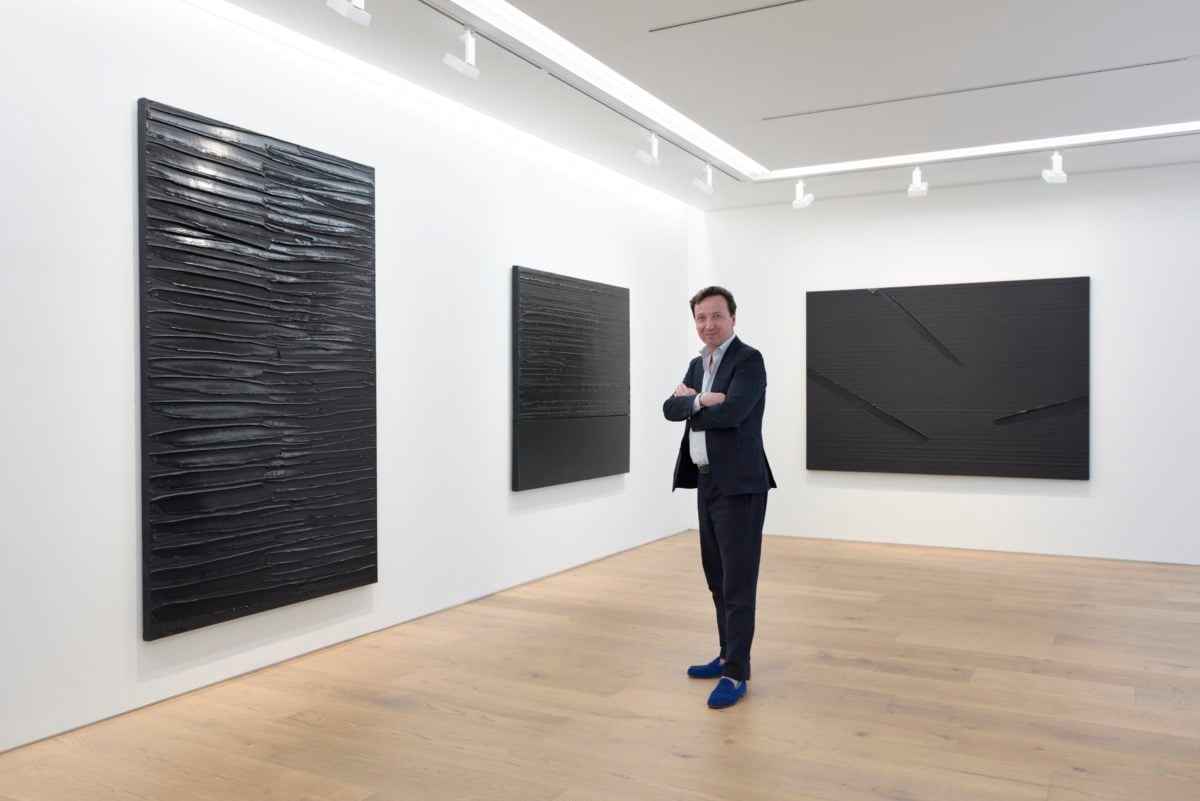
The sun never sets on Emmanuel Perrotin’s empire. Shortly after opening a gigantic new space in New York earlier this year, the French gallerist is preparing to launch yet another outpost halfway around the world, in Tokyo’s burgeoning Roppongi arts district.
The opening of the 130-square-meter space reinforces the gallery’s strong ties to the Asian art scene. Perrotin has unearthed and promoted numerous talented artists from the region over the course of his 27-year career. Most notably, he has represented Takashi Murakami since 1993, and was the first gallerist to show the art star’s work outside of Japan.
The facade of Perrotin’s new Tokyo space. Photo: courtesy of Perrotin.
“I have a very special relationship with Asia, and particularly with Japan,” Perrotin told artnet News in an email. “When I was 25, I took part to the Yokohama contemporary art fair, NiCAF, where I first met Takashi Murakami.”
Additionally, given that Perrotin now represents four Japanese artists (Murakami, Izumi Kato, Kaz Oshiro, and Aya Takano), opening a space in the land of the rising sun seems like a logical progression in the gallery’s expansion strategy. The Frenchman opened his first Asian outpost in Hong Kong 2012, and another in Seoul in 2016.
A floorpan of Perrotin’s new Tokyo outpost. Photo: courtesy of Perrotin.
Perrotin isn’t the only international gallery to set up shop in Tokyo. In recent years, New York dealer Fergus McCaffrey and the Los Angeles-based gallery Blum & Poe have both established a presence in the city. But Tokyo remains a slightly unexpected choice for dealers looking to expand in Asia. (Hong Kong, where Perrotin also has an outpost, is by far the more popular destination.)
“Establishing my gallery in Asia since 2012 has opened doors and created opportunities I never dreamed about,” Perrotin said. “It wouldn’t have been possible by only participating in art fairs; a stronger commitment is necessarily to work on a long-term basis with high-level artists and collectors.”
The Tokyo gallery will open on Wednesday with an exhibition of new paintings by the French artist Pierre Soulages. According to Perrotin, the artist—who has paintings in a number of public collections in Japan—has enjoyed a close relationship with the country since his works were first shown there in 1951.